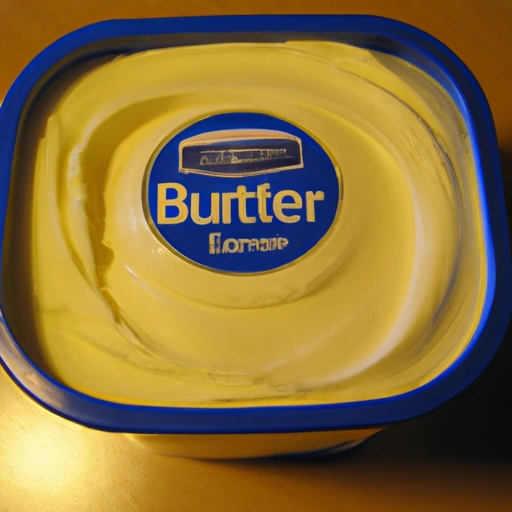Soft Margarine
Description

Soft margarine is a spreadable fat used in cooking and baking, often as a substitute for butter. It is made from a blend of vegetable oils that have been hydrogenated to a certain extent to give it a semi-solid texture at room temperature. Soft margarine is designed to be more spreadable than regular margarine or butter, making it a convenient choice for spreading on bread, toast, and other foods. It typically contains less saturated fat than butter, as it is made with oils like canola, olive, or soybean, which are higher in monounsaturated and polyunsaturated fats.
Common uses
Soft margarine is commonly used as a spread on breads, rolls, and muffins. It's also a popular ingredient in various baking recipes, including cakes, cookies, and pastries, as well as in sautéing and pan-frying applications. Its soft texture even when refrigerated makes it an easy-to-use fat for home cooks and professional chefs alike.
Nutritional value
Calories
Soft margarine contains about 70-80 calories per tablespoon (14 grams), depending on the specific product and its ingredients.
Protein
Soft margarine has a negligible amount of protein, often less than 0.1 grams per serving.
Fat
Typically, there are about 8 grams of fat per tablespoon of soft margarine, with a mix of saturated, monounsaturated, and polyunsaturated fats.
Carbohydrates
Soft margarine contains a minimal amount of carbohydrates, usually less than 0.1 grams per serving.
Vitamins
Many soft margarines are fortified with vitamins such as vitamin A and vitamin D.
Minerals
Soft margarine does not contain significant amounts of minerals.
Health benefits
Due to its lower saturated fat content compared to butter, soft margarine can be a healthier choice for heart health when used in moderation. It can also contribute to a lower intake of dietary cholesterol, as it is plant-based.
Potential risks
Some soft margarines may still contain trans fats, which have been linked to increased heart disease risk. Consumers should check labels for partially hydrogenated oils, which are a source of trans fats. Overconsumption of any type of fat can lead to weight gain and other health issues.
Common recipes
Soft margarine is used in a variety of recipes, from baked goods like cookies and cakes to savory dishes such as mashed potatoes and sauces. It's also a choice ingredient for creating flaky pie crusts and tender pastries.
Cooking methods
It can be used in the same ways as butter, such as for creaming with sugars in baking, sautéing vegetables, or melting into a base for sauces.
Pairing with other ingredients
Soft margarine pairs well with a broad spectrum of flavors, from sweet vanilla and chocolate to savory garlic and herbs. Its versatility makes it an essential ingredient in diverse culinary traditions.
Summary
Soft margarine is a versatile, plant-based alternative to butter that can be employed in a wide array of culinary applications. With its improved health profile and adaptability to different cooking methods, it is a popular choice in kitchens around the world.